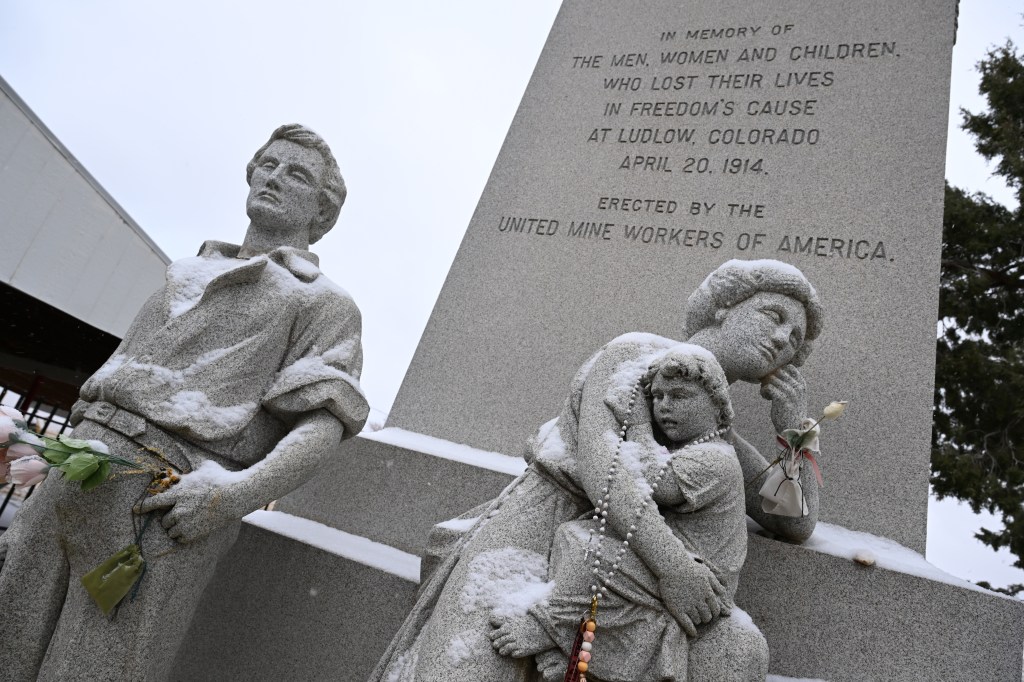Labor Day signifies more than just the end of summer, a day off from work, the start of a new academic year, or consumerism. It’s a day dedicated to the social and economic achievements of “all” American workers.
It’s a national tribute to the contributions they have made to the strength, growth and prosperity of our country and the State of Colorado.
Nationally, Labor Day began as a result of the labor movement in the late 19th century, a turbulent time in American history marked by rapid industrialization and substantial social and economic imbalance.
The Industrial Revolution led to extreme increases in wealth. But it was also a period of stark income inequality, unsafe working conditions and labor unrest. Workers — many of them immigrants — faced exhausting hours, unsafe working conditions and low wages. Child labor was widespread. The average workday was 12 or more hours, six days a week.
Improving workers’ wages, and safer workplace conditions, came at a grave human cost right here in Colorado.
In our state, Soldiers from the Colorado National Guard and private guards of the Colorado Fuel and Iron Company, attacked 1,200 striking minors and their families — who were living in a tent colony and protesting difficult mining working conditions — on April 20, 1914, in the Southwest Colorado town of Ludlow located approximately 12 miles north Trinidad; it is believed that 21 people were killed, including miners, women and children.
Although Ludlow is now a ghost town, it is the site today of a National Historic Landmark.
One week later, in Boulder County, the HECLA Mine strike began. It lasted four years and eight months and still is the longest strike in our state’s history. Seven strikers died and over 100 more were injured.
Today, Colorado is home to a diverse workforce across various industries, including technology, agriculture, and tourism. The state’s economy thrives on the hard work and skills of its workforce.
Now, Labor Day is a day to reflect on the achievements of our workforce and the progress that has been made in improving worker rights and safer working conditions. From establishing the 5-day work week and the eight-hour workday, higher wages, paid vacations, health insurance, maternity leave, retirement benefits, and the ability to work remotely, to the creation of safer working environments, the labor movement has been instrumental in ensuring fair treatment and better employment opportunities.
Labor Day also serves as a reminder of the ongoing struggles faced by workers. It underscores the need to continue advocating for improved living wages, benefits and safer working conditions.
In a broader sense, it is a celebration of the “American dream” and the belief that hard work should be rewarded with a decent standard of living and the opportunity for upward mobility.
In Colorado, Labor Day is also a celebration of the state’s economic achievements. The technology industry, in particular, has seen exponential growth, specifically within the cities of Denver, Colorado Springs and Boulder, becoming the home for innovation and startup companies. This growth has created numerous job opportunities, attracting talent from across the country and fostering a vibrant and competitive labor market.
Agriculture also remains one of the foundations of Colorado’s economy. Among the 50 states, Colorado ranks as of one of the leading producers of crops: corn, winter wheat, alfalfa, potatoes, apples, peaches and potatoes. The hard work of farmers and agricultural workers ensures that the state and the nation for fresh, locally-produced food. Labor Day is a time to recognize and appreciate the hard work and dedication of individuals who work tirelessly to sustain our agricultural industry.
The tourism and service industries are also vital elements of Colorado’s economy. Our state’s natural beauty, including the majestic Rocky Mountains, attracts millions of visitors each year. This influx of tourists drives the hospitality, retail and service sectors, providing employment and economic opportunities for many Coloradans. The holiday is also a testament to the hard work of those in the tourism and service industries who ensure that visitors have memorable experiences.
Beyond the economic contributions, Labor Day is a time for communities to come together, celebrate and reflect on shared values. Parades, picnics and public events are common across Colorado, fostering a sense of community spirit.
For many Coloradans, Labor Day is also an opportunity to spend quality time with family and friends, enjoying Colorado’s natural beauty and recreational opportunities. Whether it’s hiking in the mountains, fishing in the rivers or attending local festivals, the holiday provides a much-needed respite from the daily grind and a chance to recharge and reconnect.
As we celebrate Labor Day, it is important to look to the future and consider the challenges and opportunities that lie ahead for the workforce in Colorado and across the nation. The rise of new automation and the use of Artificial Intelligence is transforming the labor market, creating new opportunities while also posing threats to traditional jobs, such as newsrooms across our state and country. Ensuring that workers are equipped with the skills and knowledge needed to thrive in this changing environment is crucial.
On top of that, COVID-19 should have taught us that all workers are an “essential” part of our economy.
Labor Day is more than just a day off; it is an acknowledgment of the contributions and sacrifices of all workers. In Colorado, the holiday is a celebration of the state’s robust labor history, its diverse economy and the hardworking individuals who drive its success.
As we honor past achievements and look to the future, Labor Day serves as a reminder of the importance of valuing and supporting our workforce, ensuring that the American dream remains within reach for all.
Jim Martin can be reached jimmartinesq@gmail.com.
Sign up for Sound Off to get a weekly roundup of our columns, editorials and more.
To send a letter to the editor about this article, submit online or check out our guidelines for how to submit by email or mail.
